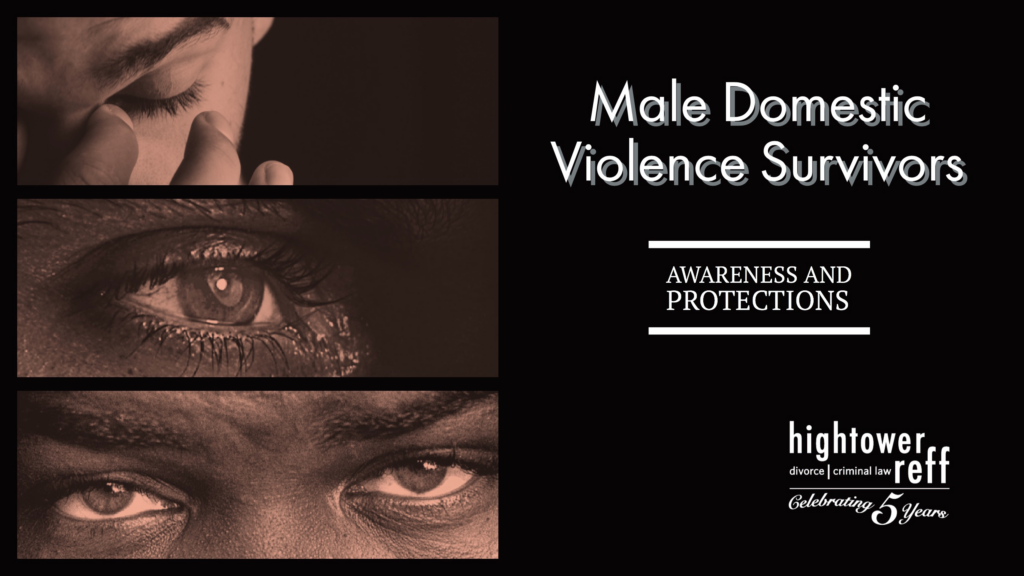
Domestic violence brings can bring to mind an image of a woman with bruises and black eyes. While this is one face of domestic violence, there are others. Some of them – more than you may think – are male domestic violence survivors.
According to a Centers for Disease Control survey, more than 1 in 4 men will be victims of intimate partner abuse during their lifetimes.
Getting help in a domestic violence/intimate partner abuse situation can be frightening and humiliating. As an attorney who’s worked in this specialized field of law for nearly a decade, I’ve found that embarrassment can be especially intense for male survivors.
If you’re a man experiencing intimate partner abuse, know that there are attorneys who are sensitive to your circumstances and will listen to you. Also, the law is here to protect ALL survivors of domestic violence – male and female.
Nebraska Criminal Domestic Assault Statutes are Gender Neutral
Nebraska law recognizes domestic assault as a separate crime from other forms of assault. Additionally, the language of the statute does not require that there be an actual physical injury for a domestic assault to have happened. In certain situations, threats can be enough.
This law is drafted the way it is in recognition of the fact that domestic abuse takes many different forms – from threats and intimidation to physical assault with weapons or other things that cause injury.
Nebraska Family Law Statues Offer Protection for Male Domestic Violence Survivors
Nebraska Family Law Statues include the Protection from Domestic Abuse Act. The Act protects all victims of domestic violence and is intended to provide services to help deal with its trauma.
As its name indicates, the Protection from Domestic Abuse Act also provides protection from domestic abuse in the form of protection orders and penalties for violating them.
Domestic abuse protection orders can prohibit an abuser from “threatening, restraining, assaulting, molesting, attacking or otherwise disturbing the peace” of his or her victim. The orders can also forbid phone calls and all forms of contact, remove an abuser from the place where the victim lives and provide for temporary custody of children, among other things.
Emergency Protection Orders
A traditional protection order requires that the alleged perpetrator be given notice and the opportunity to appear at a hearing to defend themselves against the proposed order. However, the Protection from Domestic Abuse Act allows for emergency protection orders where the victim can show they are in immediate danger of abuse.
These emergency hearings, during which only the survivor is present, are called “ex-parte” hearings. If the court refuses to issue a temporary, ex-parte emergency protection order, it will schedule a hearing where both sides have the chance to present evidence. If the alleged abuser doesn’t show up for that hearing or shows up and fails to convince the court, the court will issue the protection order.
If the court agrees to enter a temporary protection order, the order will remain in effect while the court allows time for the accused to be served with the order and to appear and defend themselves against the protection order continuing.
Once the alleged abuser is served with the ex-parte protection order, it can go several ways:
- If the alleged abuser is served with the protection order, but doesn’t contact the court to request a hearing within 5 days of being served, the temporary order becomes a final order for one year.
- If the alleged abuser does request a hearing within 5 days of being served, but doesn’t show up for the hearing, the order also becomes final for one year.
- If the alleged abuser requests the hearing within the required time period, and then shows up for the hearing, the court will hear evidence from both sides and decide if the protection order should stand.
When Children are Exposed to Domestic Violence
Along with recognizing that men are sometimes the victims of domestic violence, Nebraska law also recognizes that children exposed to that domestic violence are affected – regardless of who is the victim and who is the abuser.
The law says that both parents are responsible for protecting children from the physical and psychological trauma of domestic violence. This means getting the children out of environments where they’re exposed to domestic violence.
Parents who fail to keep their children out of harm’s way when it comes to domestic violence may lose custody. This could mean the children are placed in foster care – with strangers or with a relative. Whether you’re mom or dad, if you’re a victim of domestic violence and your kids are exposed to it, you’re putting your children and your parental rights at risk.
Protecting Children When you Leave
Regardless of your gender, it’s crucial to take steps to protect your children when you leave a domestic violence situation. That means getting protective orders and custody orders in place. An attorney who knows the ins and outs of the legal and safety issues involved is an important support.
The Nebraska Parenting Act has special provisions for developing Parenting Plans in custody cases involving domestic violence. In all custody cases, specially trained mediators are required to screen for domestic violence. If they determine that domestic violence is an issue, they may find that mediation isn’t appropriate, or that another form of specialized dispute resolution is advisable during which a parenting plan with appropriate protections can be developed and agreed upon by both parties.
If mediation is not an option, or not successful, and the court has to develop a parenting plan in a domestic abuse case, the plan will include provisions to protect the child and/or the child’s parent from further harm.
Don’t Go It Alone
Hightower Reff has a team of attorneys experienced in the specialized issues and procedures that come with domestic abuse cases.
From the criminal end to protection orders and family law and custody issues, we can help. One of our lawyers would be glad to meet with you to talk about how we can help with your case.
Call the office at 402-932-9550, or contact us and make an appointment to come visit with us about your case at our downtown Omaha, Nebraska office. Don’t go it alone.
This article should not be construed as legal advice. Situations are different and it’s impossible to provide legal advice for every situation without knowing the individual facts.
More information about protection orders is available here.




